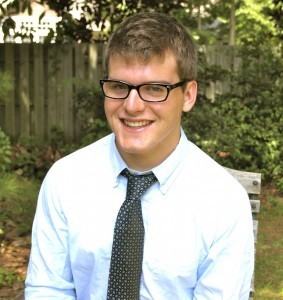Religion Roundup: On Migration
Although only a small percentage of the world, millions in the world live as foreign-born. A vast number of factors account for migratory patterns, and there are a number of competing theories that attempt to model them collectively. One element of the system which, until now, had received awfully little press, however, was how religious affiliation colored various migratory streams.
The Pew Forum released a study last week which examined the religious breakdown of international migrants: in keeping with global percentages, Christians make up the greatest chunk, followed by Muslims. The relative numbers are particularly interesting, though–Christians make up over half of the migrant population, whereas they comprise only about a third of the world. Muslims, on the other hand, only have slightly stronger representation in the migrant population than globally.
That aside, individual Jews are far more likely to migrate than any other major religious demographic–about a quarter of all living Jews are living as foreign-born residents, followed then by only 5% of Christians, and so on. This phenomenon among Jews has been generally explained by leaders in the tradition as a "consolidation" of the Judaic community, marking mobility from the Third World to the First amid fears of persecution.
 For background, immigration is generally understood to be a incredibly complex system not easily explainable without using multiple, intertwined models. For instance, the process can be observed in terms of levels: individual, household, national, international, socioeconomic class– the decision to migrate is typically not made as a simple cost-benefit analysis of economic opportunity, as it is so often portrayed. Often, the existence of social structures, international penetration, conflict, family reunification, and a host of other factors play into the issue.
For background, immigration is generally understood to be a incredibly complex system not easily explainable without using multiple, intertwined models. For instance, the process can be observed in terms of levels: individual, household, national, international, socioeconomic class– the decision to migrate is typically not made as a simple cost-benefit analysis of economic opportunity, as it is so often portrayed. Often, the existence of social structures, international penetration, conflict, family reunification, and a host of other factors play into the issue.
This study is particularly interesting because it introduces a new dimension to consider with regard to the question of "Why move?" If, as in the aforementioned case of Judaism, a religious minority faces striking oppression in a certain area or are risking conflict by concentrating themselves in unsafe territories, they'll naturally tend to want to leave. But even further than that: the nature of religion itself offers incentives for migration–seeking monuments and relics, or a common community of believers.
This might partially explain, for instance, the predominant migration streams of Muslims to Saudi Arabia, Jews to Israel, or even–given the religious structures that exist in American public life despite the Establishment Clause et al–Christians to the US. If anything, it's one in a host of reasons that individuals or groups have for international movement.
Not terribly daunting or compelling, but an interesting find nonetheless. I'd personally like to see a more specific breakdown of the affiliations of refugees, since they are occasionally included in counts of "immigrants" although the study itself never looked at the issue on its own. It seems like such a breakdown would shed some statistical light on what religious oppression worldwide looks like nowadays, and if certain countries have certain trends. Immigration–as (failed) policymaking has demonstrated–is certainly a nontrivial issue, but this new look is a motion in the proper direction for building a better model.
 Walker Bristol is an undergraduate studying religion and linguistics at Tufts University, and the Community Organizer and Interfaith Representative for the Tufts Freethought Society. Originally from North Carolina, Walker was raised in a largely Quaker community before exploring several Christian traditions throughout high school and ultimately becoming a secular humanist at age 15. Walker serves as the chair of the Committee to Establish a Humanist Chaplaincy at Tufts, and has worked as a student intern at the Humanist Chaplaincy at Harvard. Along with fellow Tufts Freethought board member Lauren Rose, Walker hosts the internet radio show FreethoughtCast. In addition to being involved in secular student activism, Walker is a hobbyist musician, ballroom dancer, and far-too-avid science-fiction fan. He tweets nonsense @GodlessWalker.
Walker Bristol is an undergraduate studying religion and linguistics at Tufts University, and the Community Organizer and Interfaith Representative for the Tufts Freethought Society. Originally from North Carolina, Walker was raised in a largely Quaker community before exploring several Christian traditions throughout high school and ultimately becoming a secular humanist at age 15. Walker serves as the chair of the Committee to Establish a Humanist Chaplaincy at Tufts, and has worked as a student intern at the Humanist Chaplaincy at Harvard. Along with fellow Tufts Freethought board member Lauren Rose, Walker hosts the internet radio show FreethoughtCast. In addition to being involved in secular student activism, Walker is a hobbyist musician, ballroom dancer, and far-too-avid science-fiction fan. He tweets nonsense @GodlessWalker.



